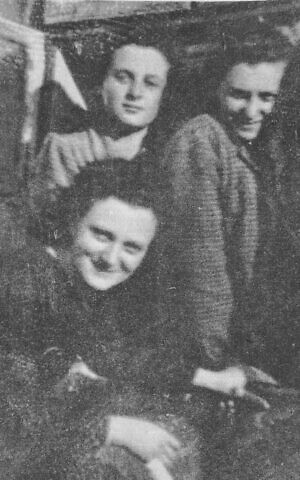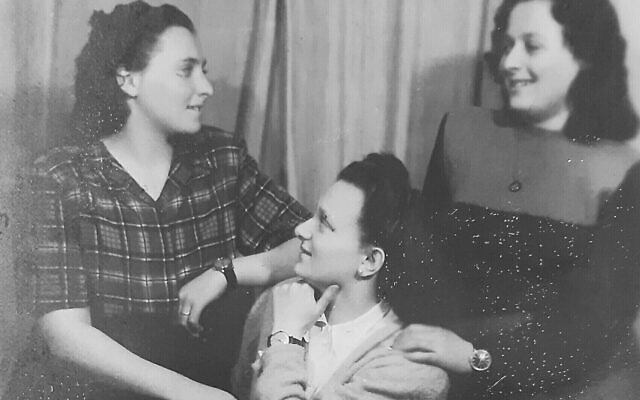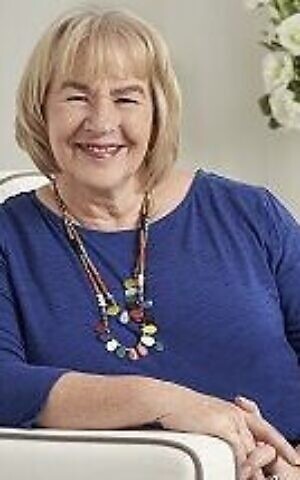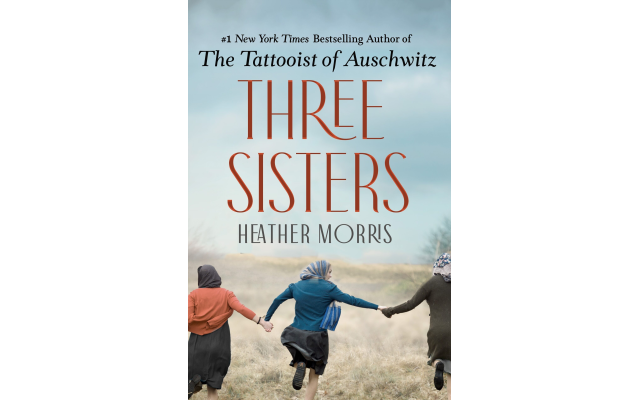Interview with ‘Three Sisters’ Author Heather Morris
Holocaust survivors, the Meller sisters, stress the importance of keeping the memory of family and history alive.
“Three Sisters,” a new book by Heather Morris, author of “The Tattooist of Auschwitz” and “Cilka’s Journey,” tells the true story of three Slovak sisters, Cibi, Magda, and Livi Meller. The trio remained together, surviving the brutalities of the Holocaust, because of a childhood promise they made to their father before he died to always look out for one another.
While on a book tour in South Africa, Morris — who is from Australia — was led to Israel to meet Livi, then 93, when Livi’s son brought her a copy of “The Tattooist of Auschwitz.” Livi knew Lale Sokolov because he had tattooed her and Gita; after the war, Gita became Lale’s wife. Morris met the two surviving Meller sisters, Magda, 97, and Livi, 95. Cibi had died in 2015, at 93.

The book chronicles the sisters’ experiences during the occupation, survival at Auschwitz, and their split-second opportunity to escape when the Allies were closing in and the Nazis began death marches for the remaining prisoners. Once rescued, the sisters made the arduous journey to Slovakia, only to find hostile townspeople, their home inhabited by strangers, and ultimately gathered the courage to travel to Israel and build a new life.
Segal: What made you include the story beyond their liberation?
Morris: “As significant as their survival was, it did not define who these girls became. It was their victory over one of history’s darkest hours, being part of the creation of the State of Israel, wives, and mothers, now grandmothers and great-grandmothers, is who Livi, Magda and Cibi are. Readers will be inspired, as I was, by the resilience and strength of the sisters in leading the lives their parents wanted for them.”
Segal: What do they want your readers to know?
Morris: “The children of the sisters want readers to know of the courage of their mothers in surviving and making decisions to ensure their families had the best lives possible. ‘Write about family, and how that is all that matters,’ they asked me. Livi and Magda want their story told so that it never happens again. Something many Holocaust survivors have said to me. Tell the world so that it never happens again.”

Segal: Did the children regret not knowing of their mothers’ experiences until they were adults?
Morris: “It was a different experience for the children of the sisters. Livi’s son and daughter were told, at age-appropriate times, quite a bit about their mother and their father’s experience during the Holocaust. Not so much the others. … One of them told me he simply could not equate what he heard with it happening to his mother. It was too much to bear.”

Segal: Is there a difference between men and women in sharing their stories?
Morris: “Yes, I have observed a difference in speaking about the Holocaust along gender lines. Women are more open to talking about their experiences. The sisters, along with their husbands, had the shared experience they could talk amongst themselves. And they did. …”
Segal: It’s chilling when Cibi states that they “needed God in those camps,” and asks, “Where was he?” Cibi lost her faith in G-d. Did you notice a difference in the way Cibi’s children express a belief/lack of belief in G-d vs. the children of Magda and Livi?
Morris: “No, Cibi’s husband, Mischka, was deeply religious, their children align with [him and] their cousins in their belief.”
Segal: How do you decide whose stories to tell?
Morris: “I am truly humbled by the stories which have come to me from many countries, not only about the Holocaust but others all worthy of telling. In the stories I have chosen to write to date I have felt a connection to them that is not easy to explain. With Lale it was having him in my life for three years [until his death] and being connected like family. I was honoring a request from Lale to tell Cilka’s story. The day I walked into Livi’s apartment and into her arms, I knew, if asked, I would love to tell her and her sisters’ story. There are others out there waiting for me. …”
Segal: It seems as if you’re divinely guided to write these books. Why do you think you’ve been chosen?
Morris: “I was, to use a phrase Lale used all the time, lucky. Lucky to have met him, be trusted by him to tell his story. …
- Dr. Terry Segal
- Arts
- Meller
- Heather Morris
- The Tattooist of Auschwitz
- Lale Sokolov
- Cilka's Journey
- Slovakia
- holocaust
- Auschwitz
- Israel
- South Africa
- Australia
- Sisters
- World War II
- resilience
- Survivors
- MJCCA Book Festival
- MJCCA’s Book Festival
- Marcus Jewish Community Center of Atlanta
- Book Festival
- Book festival of the MJCCA
- Community
- Three Sisters




comments